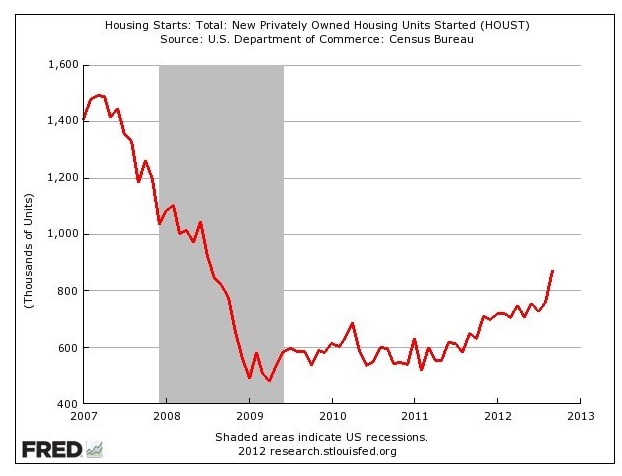The idea that the economy is going to pot just suffered a major hit following much better-than-expected housing numbers this week.
To the contrary, the U.S. economy may just be looking up.

Source: Business Insider, using St. Louis Fed data
Housing starts rose 15% last month to a seasonally adjusted 872,000 units, according to Commerce Department data. That marked the quickest pace of groundbreaking since July 2008, and was well above expectations of 770,000 units.
Reuters reports that homebuilding may add to the economy this year for the first time since 2005.
Housing only accounts for about 2% of total GDP, so it is not expected to directly impact the economy all that much. More importantly, it’s too early to suggest that the housing market has returned to normal.
Yet there are many indirect ways that a stronger housing market seems to contribute to economic growth.
For starters, an improving housing picture could be helpful on the jobs front. Reuters suggests that for every new house built, at least three new jobs are created.
Also, there is a multiplier effect with housing, notes The Capital Spectator in its analysis on the latest housing numbers.
New home construction helps to boost construction, naturally. It also helps spur other areas of the economy as new buyers fill their houses for the first time. There’s furniture and appliances to buy. Sometimes, improvements need to be made before families can move in. And movers to the suburbs may also need new vehicles for a longer commute.
There are still four main factors that could possibly derail the U.S. economy, warns hedge fund manager Whitney Tilson:
1) A turn for the worse in Europe
2) A downturn for the U.S. housing market
3) The economic slowdown in China becomes a hard landing
4) A sovereign debt crisis in Japan
Yet it’s hard not to take the strong housing improvement and surging consumer confidence numbers as incremental economic positives.



